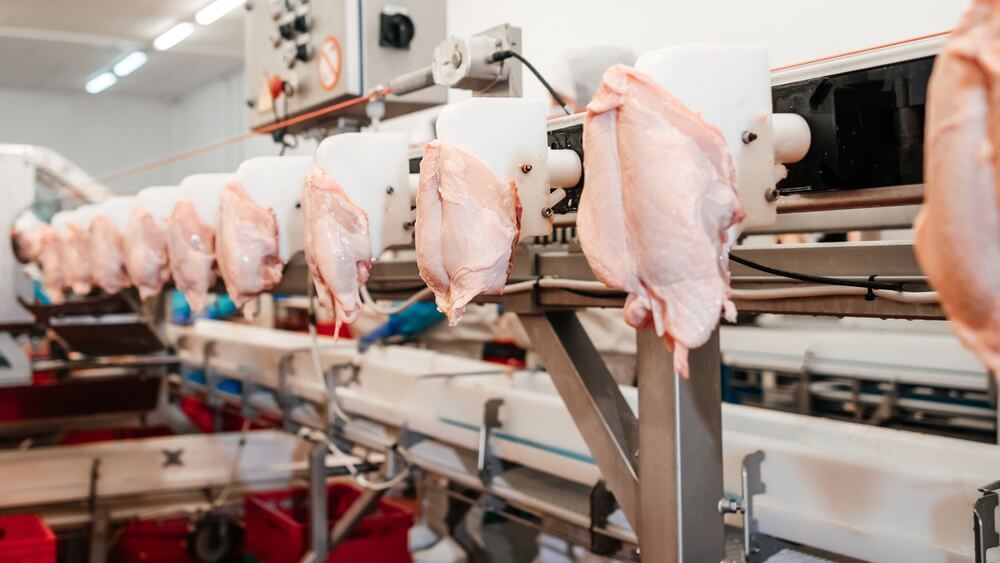The company hopes to “reduce labor costs” (aka cut jobs).

Tyson Foods, one of the big four meat processors that together control around 85 percent of the industry in the United States, employs tens of thousands of workers at its meatpacking plants. But this week, the company announced that that number may be at its peak. Tyson’s chief executive, according to Reuters, said the company will invest more than $1.3 billion over the next three years in automation.
Tyson is a major employer of both hourly and salaried plant employees; the company employs around 11,000 in its plants in the state of Iowa alone. Meatpacking plant work is still primarily done by humans, at least in some sectors. Work like deboning chicken is delicate and tricky, and until this point, it’s been more cost-effective to use human workers rather than invest in machinery innovation to accomplish that task.
But Tyson, along with the other major meatpackers, has had a great deal of trouble with labor. Through January 2021, a report found that nearly 60,000 meatpacking plant workers tested positive for COVID-19, with at least 269 confirmed deaths. This doesn’t include the community spread that went along with those cases, which is well-publicized, as plants often served as virus hotspots for smaller towns. Tyson has been sued for negligent behavior that led to the spread of the virus, although at least one case was later dismissed.
The pandemic also took a toll on the availability of workers in a multitude of ways. Meatpacking plants are some of the hardest and most dangerous job sites in the country and the processors have had to significantly rely on immigrant labor. That labor, which makes up as much as a third of the total workforce, is reliant on having available work visas and relatively open borders, both of which were shut down at various points during the pandemic.
Tyson said that its huge investment in automation is intended to make up for this loss of labor and the recent decrease in meat production. That production decrease was partly due to a lack of labor, but also largely due to breakdowns in the supply chain, in shutdowns of plants owing to COVID-19 outbreaks, and to changes in international demand. With production down, profits are also down and because it’s so hard to attract workers, the processors need some other way to make more money. Enter automation.
Reuters reports that Tyson expects to “reduce labor costs” and boost production thanks to automation, with total savings amounting to about $450 million by 2024. The automation will affect even typically human-run jobs like deboning chicken. Tyson also said that it expects labor savings through 2024 will be “equal to more than 2,000 jobs,” reports Reuters. The effects of lost labor will undoubtedly be complex. Some researchers note that the presence of meatpacking plants have a wide range of outcomes on small towns. There’s increased diversity and employment, but also many problems associated with “boomtowns,” writes researcher Don Stull, including housing shortages and strains on infrastructure like schools, healthcare and social services.